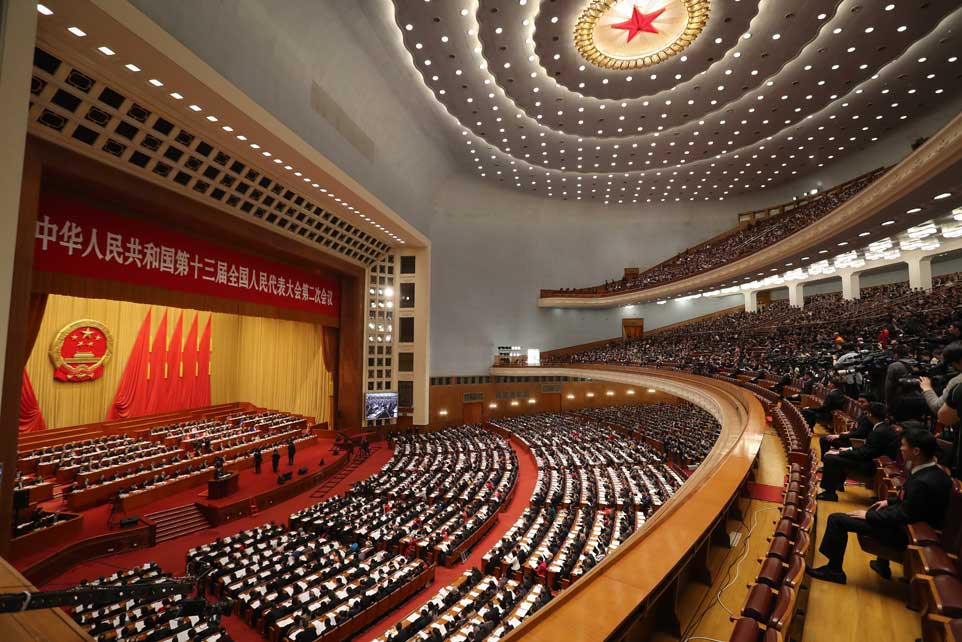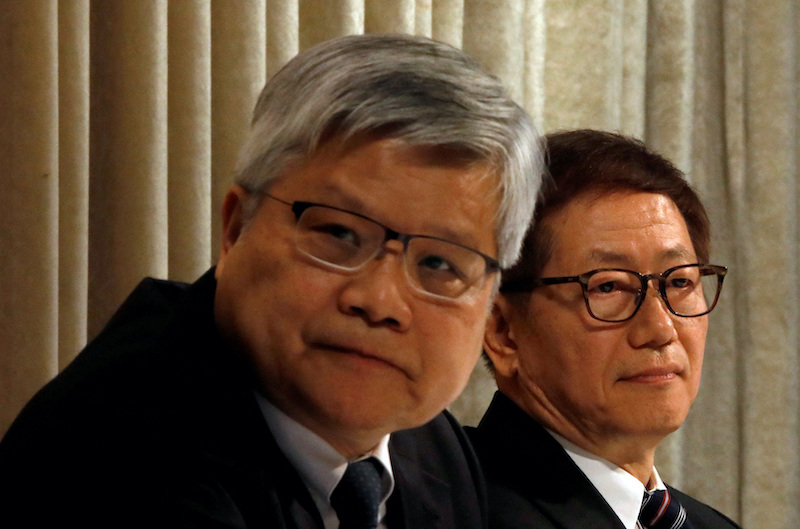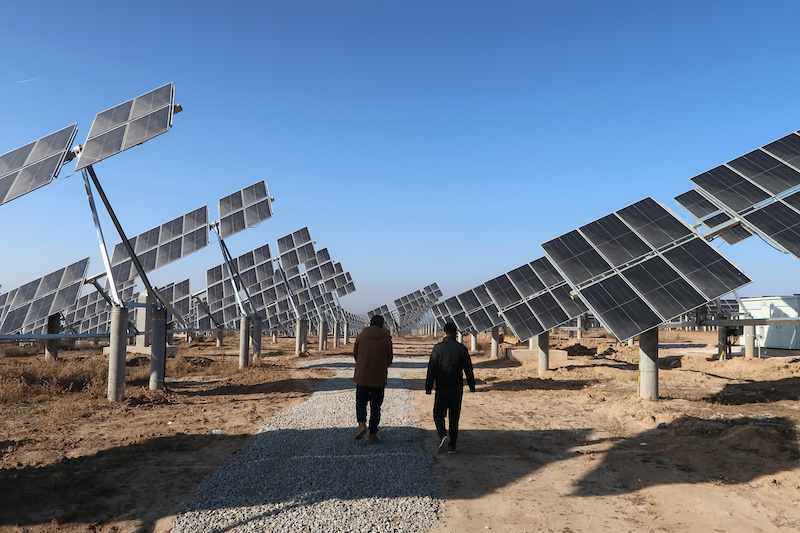(ATF) China’s top legislature said in a work report it will amend the anti-monopoly law – a move that analysts said could mean more scrutiny on both domestic tech giants like Jack Ma’s Alibaba and Ant Group, plus foreign players such as Elon Musk’s Tesla.
China will amend the anti-monopoly law, the company law and the corporate bankruptcy law, plus it plans other legislative moves to build a modern economic system and promote technological innovation, Li Zhanshu, chair of the National People’s Congress’ (NPC) Standing Committee, said on Monday in a briefing on the legislature’s plans.
Analysts said the laws will place more scrutiny on China’s digital industry, which has developed largely without much supervision and created giants such as Alibaba, Ant Group, JD.com, Meituan and Pinduoduo.
They pointed out that the law may also set an example for overseeing global tech giants such as Tesla, which are increasing their presence in the Chinese market.
“For example, the number of Tesla’s Chinese customers is growing at an exponential rate as its cars become more affordable. As data is growing more and more important, the new law could prevent the US company from abusing the data to squeeze out potential rivals,” Yu Xinmiao, an associate professor at the Shanghai International College of Intellectual Property of Tongji University, told state-backed newspaper the Global Times.
Tesla’s Model 3 was the best-selling electric car in the country in 2020, with 137,500 units delivered, according to the China Passenger Car Association. It sold 18,318 vehicles in China in February, and had a 20% market share in the country’s electric-vehicle battery market.
In June last year, Chinese media said Tesla was migrating the storage and verification of Chinese users’ data from the US to China to better serve the local customers and meet compliance requirements.
Last month, five Chinese ministries summoned Tesla and urged it to better handle customers’ complaints after Chinese consumers complained about battery fires, unexpected acceleration and failures in over-the-air software updates. The EV maker purportedly responded to complaints in an irresponsible way, saying its analysis of “back-end data” showed no fault at Tesla.
Yu expects the amendment of the anti-monopoly law to draw on the experience of foreign regulatory counterparts, such as Germany’s newly enacted legislation that aims to curb anti-competitive practices.
The new law may include more diversified standards – in particular on the scale of databases – to determine an enterprise’s dominant position, in addition to financing volume and market share, Yu said.
‘Advantaged market position’
It may also put forward a new term called “advantageous market position”, which is inferior to a market dominant position but still confers a market edge, according to Yu. The position would be based on companies’ holdings of users’ data and could serve as a reference in settling disputes among internet companies.
The current version of the anti-monopoly law was enacted in 2008, and many rules of the law can’t be applied to online operations.
China’s market watchdog released a draft amendment to the law in January last year, adding rules that are more relevant to internet companies. For example, article 21 of the new law added “the ability to grab and process data” as a criterion in determining a company’s market dominant position.
While the draft amendment to the anti-monopoly law has yet to be put into effect, the State Administration for Market Regulation (SAMR) issued a draft of anti-monopoly rules aimed at regulating the internet sector in mid-November last year, namely the Anti-Monopoly Guidelines for the Platform Economy Sector.
Before the opening of the “Two Sessions”, several NPC deputies, Chinese People’s Political Consultative Conference (CPPCC) members, and political parties called for stricter regulation of China’s “digital economy”.
Known as “lianghui”, the annual gatherings of the Chinese People’s Political Consultative Conference (CPPCC) and the National People’s Congress (NPC) are a window on the central government’s priorities and plans for the coming year.
Zhang Hui, vice president of Yunnan Lawyers Association, also an NPC deputy, called for regulators to strengthen anti-monopoly law enforcement in the digital space and “increase the cost of breaking the law” to create an environment that is conductive to fair competition and orderly development.
Well-known Chinese economist Li Daokui, also a CPPCC member, proposed this year that China’s State Council, the country’s cabinet, could lead in the setting up of a digital economy development and supervision committee, as China’s digital industry has developed in a vacuum of supervision.
The committee would help improve the governance of internet platforms and promote Chinese enterprises’ role in the rule-making of the global digital economy, Li said.
Meanwhile, China Democratic League proposed that a new model for property rights in data be set up on the basis that monopolistic practices by data owners are restricted and the sharing and circulation of data is facilitated.
China Association for the Promotion of Democracy said in its proposal on “reducing the income gap between residents and promoting common prosperity” that China should prevent tech giants from obtaining high profits and revenues by leveraging their monopolistic statuses.
Anti-monopoly campaign
China’s tech giants have been in the crosshairs of Beijing’s “anti-monopoly campaign” since November last year, when Ant Group’s IPO was suspended, after China’s banking industry regulator introduced a new micro-lending rule that will greatly affect its profitability.
In December, the top decision-making body of the of the Communist Party of China (CPC) vowed to “strengthen anti-monopoly efforts and prevent the disorderly expansion of capital” at its meeting to set priorities for economic work in 2021.
Immediately following the Politburo meeting, SAMR said it would fine Alibaba, Tencent-backed China Literature and SF Express-backed Shenzhen Hive Box 500,000 yuan ($76,464) each for not reporting properly on past deals for anti-monopoly reviews.
China also imposed a 3 million yuan ($458,791) fine on online discount retailer Vipshop for unfair competition. The company was found to have used software and algorithms to prevent brand operators from selling products through other online channels.
Premier Li Keqiang reiterated last Friday that China will “strengthen anti-monopoly efforts and prevent the disorderly expansion of capital” as he delivered a government work report to the fourth session of the 13th National People’s Congress in Beijing.























